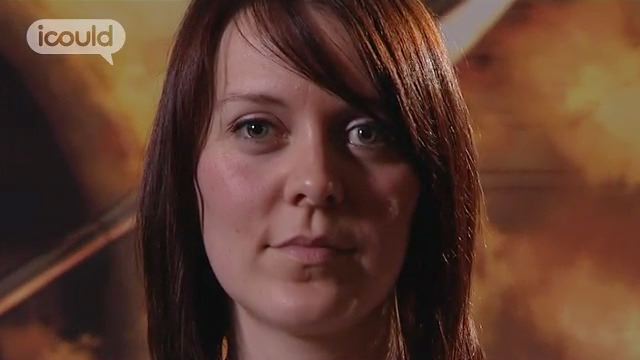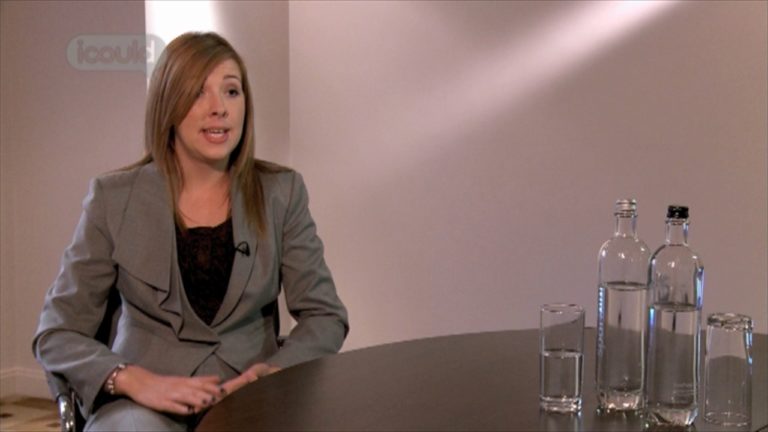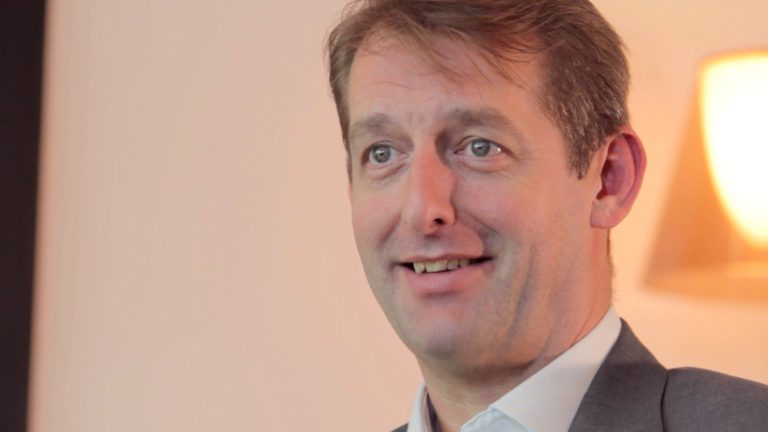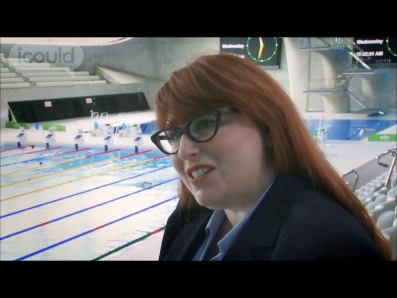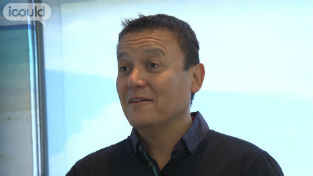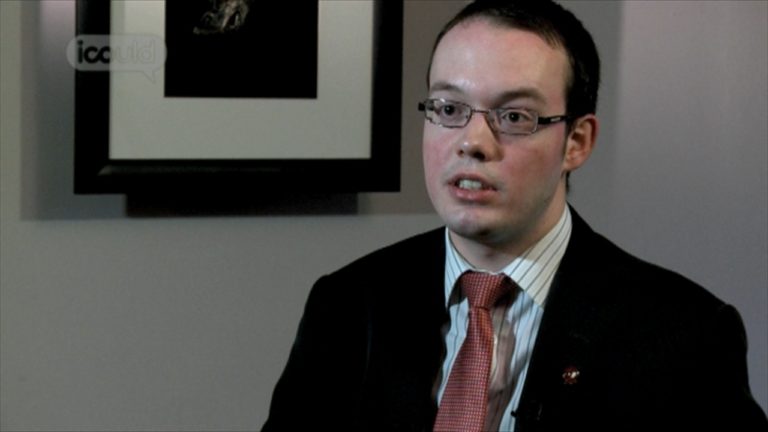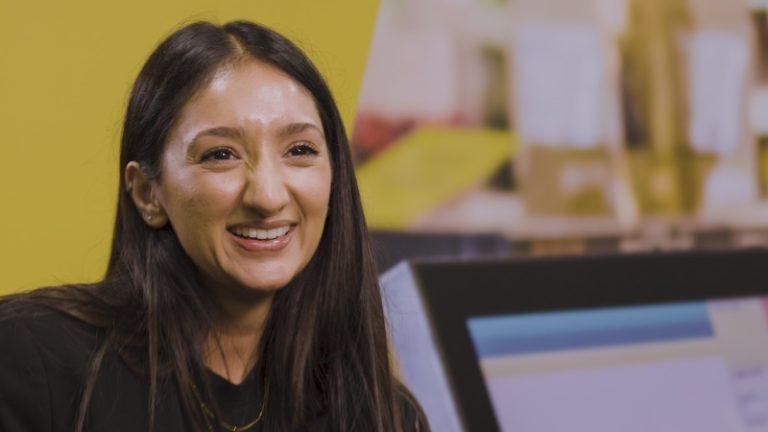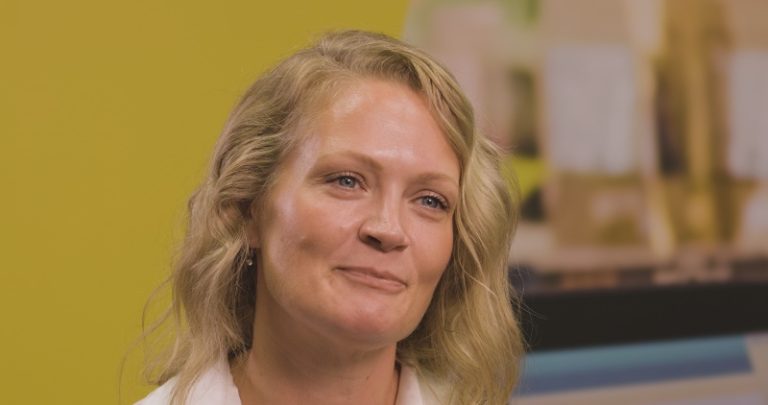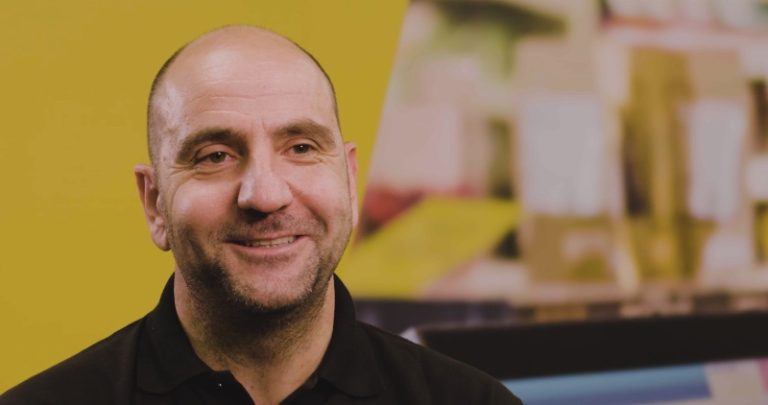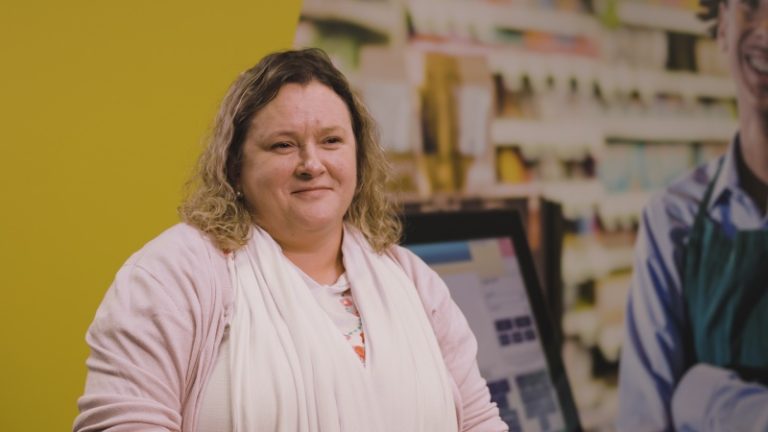Explore: Fashion
Director of Organisational Development
Pentland Brands Ltd
info Issues viewing the video?
| Time Code | Simon Watt
Director of Organisational Development |
| 00:04 | I’m Simon Watt. I work as Director of Organisational Development, which is part of Human Resources. |
| 00:09 | It’s a very broad role and it looks after lots of things around the organisation, the shape of the organisation, how you get business done best. There’s a lot around talent development and making sure we have the right people in the right place |
| 00:21 | There’s a lot about sort of training, development, leadership, keeping people engaged in their work all the time. |
| 00:27 | Driving performance, making sure we can measure what performance means and how people perform better. So lots of things around people. |
| 00:32 | I love my job because you can really see a change. So I’ve had a really exciting career and I started off in banking which wasn’t for me and I moved into management consultancy and really since then I’ve had a really great opportunity, set of opportunities to work abroad. |
| 00:52 | Spending a lot of time abroad, on balance has been absolutely positive, but of course there are flip sides to it all as well and actually I did all of that as a married person and all with three young children. |
| 01:05 | When you look at the way that my career’s developed, in hindsight it looks all logical. Every move looks logical. But at the time, some of the moves seemed a little bit sort of out of place and, you know, why are you doing that, why are you leaving the bank, why are you going to Spain? |
| 01:21 | I ran my own business for a few years and one of my clients was Mattel and I folded my business to go and work full-time for Mattel. That didn’t seem that logical at the time, to other people, but I knew it was going to be right for me, but also followed my heart as well. |
| 01:35 | One thing that was really helpful for me, early career, was to know that I’d got support around me from my family, especially when I went into the bank because that was perceived as a really steady job, a good thing to do and isn’t my son doing well with life. |
| 01:51 | Different story when I left the bank and I actually went to live in Spain for two years, to learn Spanish. That was a bit of a harder sell, actually, because my mum thought, well you’re leaving a great job in the bank to go and do something far less structured in Spain, |
| 02:06 | But she still supported me. What I found helped me was just to talk about why I’m doing this. Here’s what I want to do. I want to learn a foreign language, I want to travel, see the world and I want to further my career and with that understanding, I got much more support and that was really important. |
| 02:22 | I left school with A Levels and I didn’t go to university and I joined the bank at 18. When I started to look at corporates, then the lack of that qualification was a bit more of a barrier. |
| 02:33 | But one thing I did about 10 years ago was I did an MBA. |
| 02:37 | The MBA which is a Masters in Business Administration, it gave me that peace of mind that I could sort of compete on that academic level as well as a professional level. |
| 02:46 | I don’t know if it’s made any difference whatsoever in terms of the way that people look at me or promote me or whatever, I don’t know. But it’s made a lot of difference to me. |
| 02:53 | I’ve been really lucky. Already I’ve had an amazing career, you know, I couldn’t have, I would never have planned it from the beginning like this, but there’s nothing I would change. |
| 03:03 | I wake up at five o’clock every morning, through choice because I just love my job and that’s really important to me. |
| 03:11 | You’ve got to love what you’re doing and for me, it’s about making a difference. It’s about being able to go home in the evening and say, this is what I did today. |
| 03:19 | Here it’s really important that you build strong relationships, that you work collaboratively. |
| 03:25 | We always look for passion. We always look for people who really love what they’re doing and there’s a phrase there, do what you love and you’ll love what you do and that’s so true. Why would you do a job that you don’t enjoy doing. Life’s too short. |
| 03:38 | There’s other things like we have a value that we call courage, which is about doing the right thing. It’s not always the easy thing and it’s not always the obvious thing either, but there’s a right way to do things. |
| 03:51 | We have another one which is called always learning, so we really value people who are curious, who want to know why. You know, the more times you ask why, the better, because you’ll really understand the reasons for a particular process or a particular decision and learning sometimes means making mistakes. |
| 04:09 | Just as long as you learn from those mistakes, you don’t make the same mistake over and over again, you share that learning. |
| 04:14 | Imagine you had a post-it note stuck to your forehead and as you walk around throughout the day, you ask people to write on that post-it note what they think of you. In other words, what would your brand be and does it say what you want it to say? I would have been more aware of that, that people see what you do and everything you do demonstrates that, so just be aware of that all the time. You know, small things like the way you dress and how polite you are and the way you shake hands. |
| 04:37 | Just be yourself, be genuine and authentic, don’t try and be something else, just because that’s what you believe society wants you to conform to. |
| 04:46 | I think there are sort of boundaries there as well because how you portray yourself on Facebook or on Instagram or whatever else is a permanent record. Be yourself, but be careful about how you portray yourself. |
| 04:59 | END |
“When you look at the way that my career’s developed, in hindsight every move looks logical but at the time some of the moves seemed a little out of place.” Simon left school after his A-levels and went to work for a bank, before moving to Spain to learn Spanish. He came back to England, set up his own business and studied for a master’s degree, then took a job with one of his clients. He now works in human resources, focusing on training and other ways to help staff do their jobs better.
More information about Charitable organisation managers and directors
Data powered by LMI For All
£61,880
average salary
The UK average salary is £29,813
40
average weekly hoursThere are 37.5 hours in the average working week
33%
male
67%
female
The UK workforce is 47% female and 53% male
Future employment
Future employment
Description
Charitable organisation managers and directors plan, organise, co-ordinate and direct the activities of organisations in the charitable and not-for-profit sector.
Qualifications
Entry is generally via career progression from a related occupation (e.g. Charity coordinator) and relevant experience of the charitable sector is often required. In some fields a relevant degree or equivalent qualification may be required.
Tasks
- Plans, organises, coordinates and directs the resources of a special interest or charitable organisation
- Helps to formulate and implement charitable organisations' policies and ensures these meet legal and statutory provisions
- Represents their charity in consultation and negotiation with government, employees, trustees and other bodies
- Generates income by co-ordinating funding bids, organising appeals, and managing relationships with funders
- Stimulates public interest by providing publicity, giving lectures and interviews and organising appeals
- Directs or undertakes the preparation, publication and dissemination of reports and other information pertaining to the organisation
Employment by region
Top 10 industries for this job
Real estate
14346
Social work
11537
Residential care
5323
Legal & accounting
5164
Membership organisations
4150
Scientific research
2732
Computer programming, etc
2224
Other professional
1744
Health
1380
Office admin.
1340
Employment status
Related career stories
⇦
⇨
